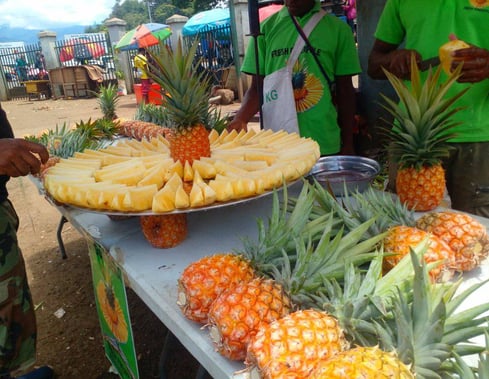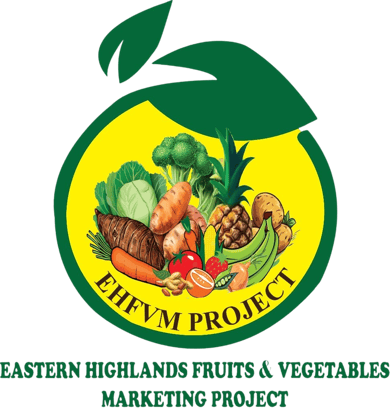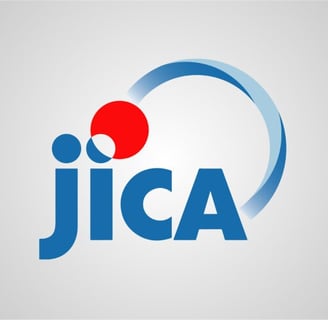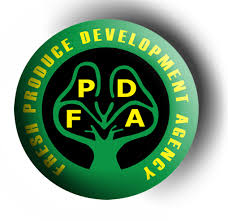Pineapple and Tomato Farming Thrives in Ungai Bena District
Ungai Bena District is rapidly becoming a key agricultural hotspot. With rich soil, the district is ideal for growing fruits and vegetables. Local farmers are increasingly turning to pineapple and tomato production, along with other high-value crops, to drive economic development.
Pineapples in Ungai Bena flourish under natural conditions. Smallholder farmers grow sweet, golden varieties that are in high demand. EHPMVFP (Eastern Highlands Province Market Value Facility Program) has stepped in this persuit to support this booming sector. Through organized farmer groups, pineapples like another fruts and vegetables will be harvested, packed, and stored in clean facilities before distribution.
These efforts help reduce post-harvest losses and improve shelf life. With better logistics, pineapples from Ungai Bena will reach markets in Lae, Port Moresby, and beyond.
Tomatoes: A Year-Round Staple Crop
Tomatoes are another top-performing crop in the district. Farmers grow hybrid and traditional varieties suited to local climate conditions. With technical training and access to improved seeds, yields have significantly increased. Tomatoes are harvested weekly and sorted at central packing points set up by EHPMVFP.
These tomatoes are then distributed to urban supermarkets, open markets, and food processing facilities. Cold storage units help maintain quality and prevent spoilage. This has enhanced customer confidence and strengthened supply chain reliability.
Expanding Into Other Agricultural Produce
While pineapple and tomato are front-runners, other crops are also thriving. Farmers in Ungai Bena grow cabbage, carrots, ginger, capsicum, and local leafy greens. Root crops such as kaukau and taro are cultivated in rotation to improve soil health.
EHPMVFP supports diversification by providing seedlings, fertilizers, and continuous training. Market days are coordinated, allowing mixed produce to be loaded and shipped in bulk. This reduces transportation costs and increases income for rural growers.
Mobilization and Aggregation for National Sales
One of EHPMVFP’s biggest successes is its farmer mobilization strategy. The program groups small-scale producers into cooperatives, making it easier to collect, store, and ship large volumes. Aggregation centers now operate across key villages in Ungai Bena, enabling timely supply to regional buyers.
Mobile collection trucks and real-time communication systems ensure produce is picked up promptly. Standardized grading and packaging build trust with retailers and wholesale clients.
Focus on Quality and Consistency
Maintaining quality across the value chain is a top priority. EHPMVFP has introduced good agricultural practices (GAP) workshops and post-harvest handling protocols. Farmers learn how to clean, sort, and store crops with minimal damage.
Storage hubs use ventilation systems and pallet stacking to prevent rot and maintain freshness. Tomatoes and pineapples are packed in food-grade crates and shipped using refrigerated trucks when required.
Empowering Local Farmers with Market Access
Before EHPMVFP’s interventions, most farmers sold informally at roadside stalls. Prices were unstable, and waste was high. Today, farmers enjoy structured buying arrangements with supermarkets, exporters, and school canteens.
Women and youth are especially active in this transition. Many manage packing lines or operate transport vehicles. The new market network has created jobs and brought consistent revenue to households.
Looking Ahead: Scaling Up Production
Ungai Bena’s agricultural success story is just beginning. Plans are underway to expand irrigated farming areas and build additional storage facilities. With EHPMVFP leading coordination, the district is on track to become a national food hub.
Improved road access and digital payment systems will further streamline logistics. The goal is simple: empower farmers, reduce food waste, and deliver top-quality produce to every corner of Papua New Guinea.
Conclusion
Ungai Bena District stands out as a growing agricultural powerhouse. Thanks to the commitment of local farmers and EHPMVFP’s strategic support, crops like pineapple and tomato are now feeding the nation. With better organization, quality control, and market access, this rural community is moving from subsistence to sustainability—one harvest at a time.






